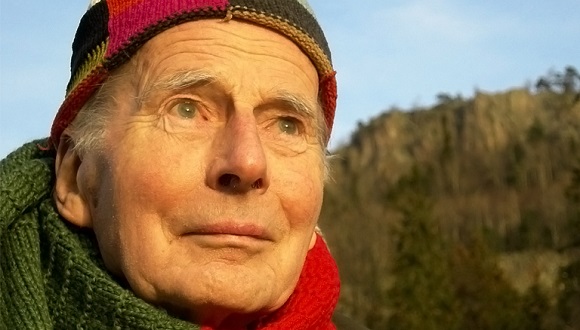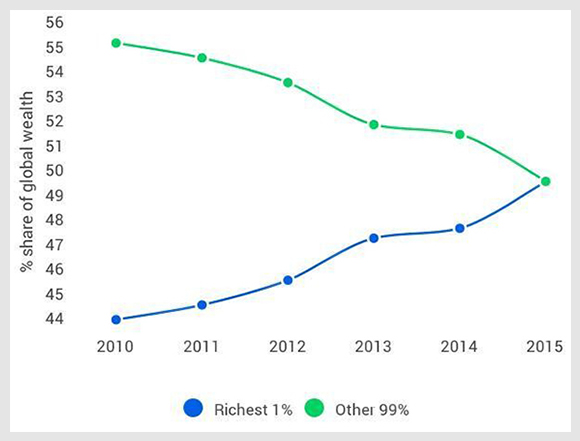The Deep Ecology
In this new post, Jaume Terradas explains the bases of Naess' Deep Ecology, its philosophical roots and the implications in the present society.

The Enlightenment wanted to liberate us, by the Reason, of political Absolutism and religious Dogma. "I think, therefore I am" is, however, a dualistic statement: only humans think and this consolidates human-nature dualism. The old Judeo-Christian idea that God gave humans the Earth for their sustain and enjoyment persisted after the Age of Enlightenment in the anthropocentric vision of technological societies. Darwin and other scientists demonstrated that humans and our cultures are products of the evolution, but the anthropocentrism subsists and the exploitation of the environment has led to global problems in the biosphere. Ecology is critical with anthropocentrism because we are part of the biosphere and we depend on life support systems. Environmental education argues that it is necessary to re-connect humans living in cities with nature and to show them that they are part of it and they depend on it. The ecological message is monistic: our destiny is united to that of the biosphere, because we are part of it.
This was the starting point of the most elaborate ecological philosophical development, Deep Ecology, promoted by Arne Naess (1912-2009) from 1972: a holistic philosophy of harmony with nature, sustained by an ecological consciousness and directed towards self-realization. Naess challenged Western anthropocentrism and picked up a tradition between whose pillars we find Aldo Leopold, Henry Thoreau and his celebrated Walden, or John Muir, and claimed philosophical roots in Leibnitz, Spinoza, Schelling or Rousseau, literary in Aldous Huxley, D.H. Lawrence, Lev Tolstoy, Alain Ginsberg or Castaneda and religious in Gandhi, Buddhism, Taoism, Abrahamism, Kabbalah, Christian Mystics or Sufis.

The first point emphasized by Naess (1973, 1993) is the inherent value of each being, each landscape, each ecosystem, etc., regardless of their usefulness. A second principle says that everything is interconnected (holism). Naess called his proposal Deep Ecology in the face of a superficial ecology, anthropocentric, for which the sole purpose of nature is to satisfy current or future human needs. For Deep Ecology, the ontological boundaries between living beings are illusory, so the biosphere interests are also our interests (Keller 2008). It opposes anthropocentrism and recognizes our belonging to wider wholes.
Ethics was built thinking only on the relations between humans, but Spinoza proposed a biocentric egalitarianism: for him, there was only one substance and everything was a modification of this substance and had intrinsic value. Nor Gandhi valued nature for its usefulness (Kumaria 2003). He did it as a God's creation (E.O. Wilson, in his book Creation, called spiritual leaders to add to the preservation of God's work). For Gandhi, all that exists is part of an omnipresent and omnipotent Parmatma and has an intrinsic right. Its non-violence arises from the belief in the uniqueness of life: the desire to possess distances us from the ethics and morality of life, we must stop stealing from others and from life. Deep Ecology is very close to these ideas: when it speaks of self-realization the "self" is the organic whole and not the individual ego.

Naess doubted that we would ever have enough knowledge to manage the planet and ecosystems in all their complexity. He believed that we should recognize this limitation and be more humble. He criticized neoliberalism and communist solutions to maximize production and consumption and adopting centralized decisions. He proclaimed himself an anarchist, pacifist and supporter of civil disobedience, but doubted that the suppression of social hierarchies would make an end to environmental destruction. If we could not understand the complexity, we would have to make decisions without scientific certainty but there were things that could be said, e.g. on global warming, that are more likely to be right than others (Krovel 2013). His position was, therefore, quite pragmatic.
Deep Ecology has lost momentum, but its ideas have penetrated into “green” thinking. The movements in defense of the rights of the animals have taken part of the discourse of Deep Ecology. Many ecologists have embraced Naess's moral voluntarism and holistic positions. But Scerri (2016) rightly points out that, thus, exploitation problems appear as moral failings: there is not a critique based on the analysis of the historical development of societies and, therefore, political-social solutions are not proposed. Even social inequalities are postponed. Large corporations and established powers: adopt a holistic and voluntarist vision and give "solutions" based on the commodification of "services" and on education in the long run. Others believe that in holistic ecocentrism underlies the idea that only natural conditions can be good: all that humans generate is disturbance, pollution, loss of biodiversity, etc., and all technology is suspect.

Ecologism is the only movement in the twentieth century that claims to have roots in a science and, together with feminism and social demands, it has a strong mobilizing capacity against oligopolistic neoliberalism that has triggered an unbearable growth of inequality. But it has not yet managed to shape a political thought and its praxis. It is divided between positions ranging from the will to change society in depth to ultra-conservationism and even fascism, going through all kinds of possibilisms. This situation facilitates the defense of the current System.
Naess was right in some aspects, and it is true that we will hardly ever fully understand something of which we are a part and that strategies must be developed betting on the most probable evolution according to the available data. But now it is time to offer credible alternatives to how society should be organized.
Articles:
Keller D.R. (2008). Deep Ecology. In B. Callicott & R. Frodeman (eds.) Encyclopaedia of Environmental Ethics and Philosophy. Macmillan reference, pp. 206-2011.
Krovel R. (2013). Revisiting social and Deep ecology in the light of global warming. Anarchist Studies, 21.2.
Kumaria P. (2003). Nature and Man: Gandhian concept of Deep Ecology. Anasakti vol. 2.
Naess A. (1973). The shallow and the deep, long-range ecology movement. Inquiry, 16. 1-4: 95-100.
Naess A. (1993). Ecology, community, lifestyle: outline of an ecosophjy. Cambridge Univ. press, Cambridge.
Scerri A. (2016). Deep Ecology: the holistic critique of Enlightment dualism and the irony of history. Environmental Values, 25 (5): 1-21.







